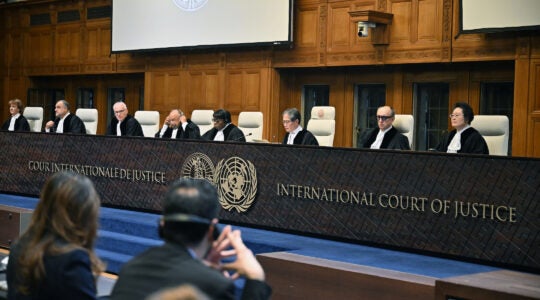TEL AVIV (MarketWatch) – After the Bank of Israel’s three-day work stoppage last week was postponed, the country now faces a broader job action, as its biggest labor federation, the Histadrut, has declared a general strike in the economy on Wednesday.While the central-bank wage dispute stopped things like the refilling of ATMs and the exchange of cash from Tel Aviv Stock Exchange trades, a Histadrut general strike stops a good deal of what this country does in its daily life. The strike is set for 6 a.m. on Wednesday (midnight Tuesday, U.S. Eastern time). Government offices will shut, so forget about renewing a passport or driver’s license. There will be no parking tickets, though there will also be no trash collection. Containers will sit on the docks at the port. The national insurance office will be shuttered, as will the post office and Israel Electric Co., the national utility. Trains in Israel won’t run. A spokeswoman for the Tel Aviv Stock Exchange said that the bourse would be open as long as the banks are open. Late-day press reports did not indicate that the banks were part of the planned strike. Ben-Gurion Airport south of Tel Aviv will shut down, a couple of weeks before Passover – a huge source of tourist dollars here – and in the week when thousands of British fans are due for Saturday’s England-Israel qualifying match for the Euro 2008 soccer tournament. The problem at the heart of the strike is some local governing councils have not paid 3,700 of their employees, and the Histadrut wants the central government to step in and pony up. This dispute has been going on for a number of years, not unlike the Bank of Israel dispute, which has been running for four years. The central-bank strike was put off until this Thursday while the two sides try to reach an agreement. See related commentary. Economic costIsraelis are not unaccustomed to general strikes, which occur periodically, are disruptive to daily life and costly to the overall economy. Shraga Brosh, president of the Manufacturers’ Association, estimates the overall economic cost of a general strike at $47 million for each of the first couple of days, rising to as much as $71 million a day thereafter. “I am calling on the government to act aggressively to transfer the money to the workers and to make sure that this won’t happen again,” Brosh said. “We are fully booked for Passover” so a strike “would be a great disaster,” says Eli Gonen, president of Sheraton Israel and of the Israel Hotel Association. The country is expecting 70,000 visitors for the holiday, and if they don’t show up, that’s a total of as much as $190 million lost in hotel-room costs and related spending on meals, gifts and the like, Gonen says. At the micro level, thousands of British soccer fans and others have booked 12,000 hotel nights for March 22 to 25, the hotel group reports. That’s a third more Britons than showed up in Israel during all of March 2006. Uriel Lynn, president of the Federation of Chambers of Commerce, in a statement called on the government to find a solution and pay the municipal workers. But he also said that if the Histadrut calls a strike, the industry group would ask the National Labor Court to issue an order prohibiting the job action. “Not every injustice justifies use of the strike weapon,” he said. Some academics agree on this point. In Israel, “the least that should be done is to restrict strikes by essential services,” says Omer Moav, professor of economics at Hebrew University and a senior fellow at the Shalem Center, a Jerusalem academic-research group. The police, he says for example, are prohibited from striking. But if the Israel Electric Co. or another monopoly public-service provider goes on strike, “doesn’t that present a risk to the Israeli population?” Moav says. Other western countries have found ways to restrict strikes by public-sector workers, he says, suggesting that Israel widen its use of two-tier wage systems, in which newly hired workers are subject to less-restrictive wage agreements. Such a system is in place at the Bank of Israel and elsewhere, Moav says. The Histadrut wants the current problem solved now. “If someone is coming to work, you’ve got to pay him,” says a spokesman for the organization. Israel’s prime minister, Ehud Olmert, promised two weeks ago to find a solution, “and now they want a delay,” the spokesman said. “For three years they’ve been talking to us. This can’t go on.” The Histadrut represents about 700,000 workers in many fields. It’s run by Ofer Eini, who in January 2006 took over when Amir Peretz became head of the Labor Party. Peretz is now the country’s defense minister. The spokesman for the labor federation says that a general strike is the strongest measure it can take, but in the current dispute with the municipalities, “we have no other means.”Robert Daniel is MarketWatch’s Middle East bureau chief, based in Tel Aviv.This article was provided by MarketWatch from Dow Jones. The original version of the article can be found here on the MarketWatch site.
JTA has documented Jewish history in real-time for over a century. Keep our journalism strong by joining us in supporting independent, award-winning reporting.





